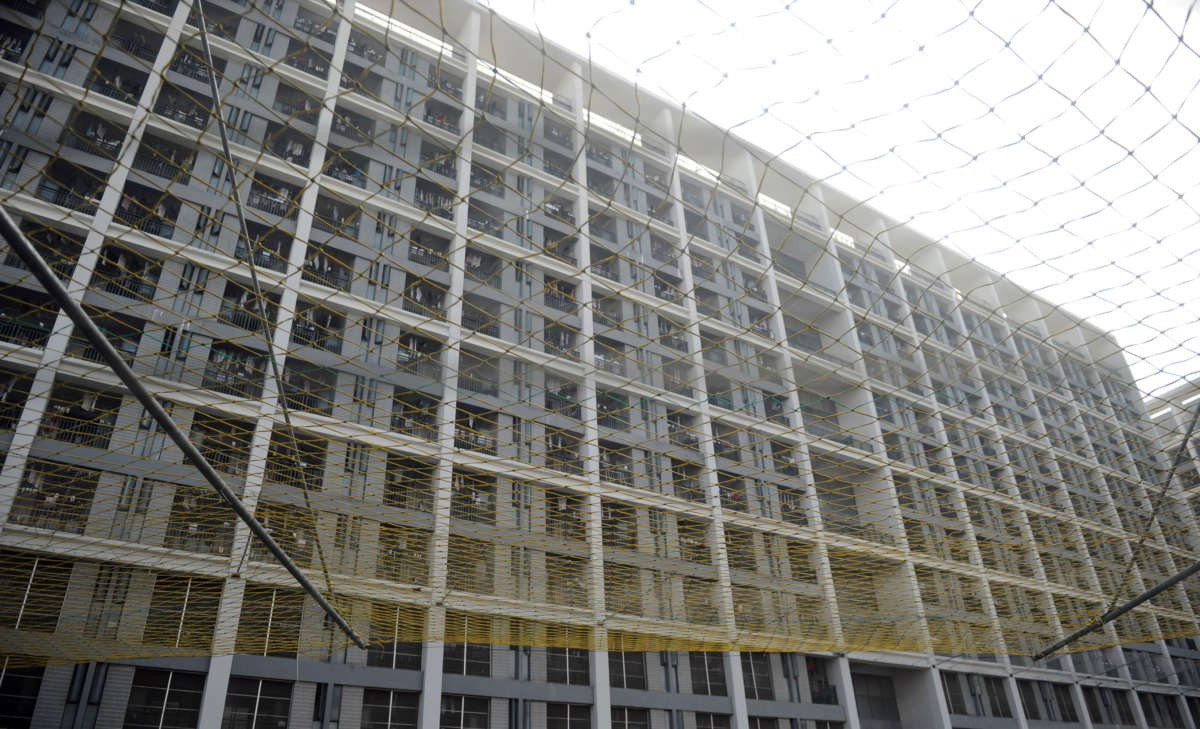Global Factory Sweatshops: Workers Create Corporate Wealth For Nike, GM, Apple, Walmart..
Last edited Wed Jan 8, 2020, 09:50 PM - Edit history (1)
- Here’s What Workers of the Global South Endure to Create Corporate Wealth.- Eve Ottenberg, Truthout, Jan. 5, 2020. Excerpts:
In recent decades, as U.S. corporations shipped millions of jobs overseas to save money on wages, GM, H&M, Apple and dozens of other companies established elaborate supply chains in Asia, Mexico and Latin America, where workers earn pennies per hour. These chains are geographically expansive networks organized by foreign companies to produce semi-finished goods in different places before final assembly for huge global corporations.
Abuses abound. One typical example: An Indonesian factory that supplied the Japanese multinational behind the clothing brand Uniqlo abruptly closed, leaving workers with unpaid wages and unpaid severance. Intan Suwandi, the author of the recently published book Value Chains, told Truthout that there have been similar cases involving Nike, Adidas, H&M and Walmart in Cambodia and Honduras. A Chinese factory that supplied PUMA abused its workers and paid starvation wages, while workers in India’s home garment sector are as young as 10 years old, working for companies that supply the U.S. and European Union.
Suwandi also cites reports of a Chinese factory that produces computer products, such as keyboards and printer cases, for Hewlett-Packard, Dell, Lenovo, Microsoft and IBM. The factory applied a “long list of draconian disciplinary measures, and fines were used to control every movement and almost every second of the workers’ lives.” She also mentions a Chinese factory that produces parts for Ford, where, among many violations, seriously injured workers were “fired after a year or two.”

-- Exterior of an employee dormitory equipped with a suicide-prevention net in Foxconn Technology Group's industrial complex on Oct. 16, 2010 in Shenzhen of Guangdong Province, China.--
And then there’s Foxconn, the Taiwanese company that assembles iPhones for Apple and products for Dell, Nokia, Hewlitt-Packard and Sony. It employs roughly 400,000 people at its Shenzhen factory, paying 83 cents an hour, under conditions so deplorable that in one six-month period in 2010, 13 workers jumped from the factory building, at least 10 to their deaths, while later, 150 threatened to kill themselves thus. Meanwhile, in 2012, a fire in a garment factory in Dhaka, Bangladesh, that supplied Walmart and Sears, killed 112 workers.
Value Chains argues that economic imperialism is alive and well and being practiced in the Global South by corporations from the North. Although in recent years some leftists have argued that with the hollowing out of the Global North’s manufacturing base, economic imperialism ended, Suwandi disputes this. Her book mentions the GM commodity chain, which, as former GM director of sustainability David Tulauskas notes, includes “20,000 suppliers that provide us parts that go onto our vehicles. We buy from them approximately 200,000 individual items, spending about $100 billion. We operate in 30 countries. We sell those products in 125 countries.” Those suppliers, Suwandi explains, are scattered in Brazil, China and Mexico. Wages are kept low through direct investments and “arm’s lengths contracts.”
Value Chains devotes many pages to these contracts, which are a form of subcontracting without equity involvement. In these contracts, multinationals outsource production to suppliers mostly in the global South through contract relationships. As a result, the complex network of labor-value chains conceals how profits are extracted from workers by making it almost impossible to trace profits back to those workers. This is largely due to the arm’s length contracts.
- "Globalized production is a new form of economic imperialism that transfers wealth from South to North."-
- "The cheaper the wages of the workers in the Global South, the greater the gross profit margins." -
Cheap labor in the Global South means that multinational capital only has to pay a few cents an hour for work which creates much more value than that, Suwandi explains. Corporations disguise this value capture by attributing it to marketing, distribution and design activities in the Global North. Of course, it helps that that’s where the products are sold, with high markups on production cost. This obfuscates GDP.
The top three countries participating in labor value chains are China, India and Indonesia, where, according to Value Chains, wages are low and productivity is high. Indeed, Value Chains argues that globalized production is a new form of economic imperialism that transfers wealth from South to North. This does not preclude, however, the creation of local billionaires in China and India, who reap immense profits from their own transnational corporations. And where does all that profit go? “Huge quantities of this loot,” Value Chains reports, “captured from peripheral economies in the global South end up in the ‘treasure islands’ of the Caribbean, where trillions of dollars of money capital are now deposited.”
All this pelf, of course, comes directly out of workers’ hides. The cheaper the wages of the workers in the Global South, the greater the gross profit margins.
More, https://truthout.org/articles/heres-what-workers-of-the-global-south-endure-to-create-corporate-wealth/